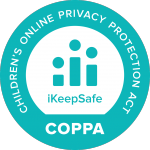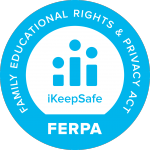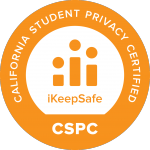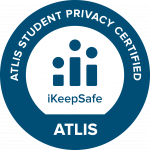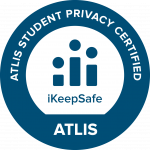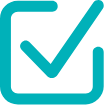California is home to the world’s largest technology hub and is typically where startups and developers move when they want to find the best talent and the best opportunities.
However, there are plenty of talented Californians eager to break into the tech field, as well.
These 20 organizations are working with underrepresented communities to give them the skills to break into STEAM industries and take the state’s tech world by storm.
LA Makerspace
LA Makerspace offers all youth in Los Angeles the ability to explore their interest in STEAM fields and build their confidence by working together on projects. It currently partners with the Los Angeles Public Library System and County of Los Angeles Library (which has 154 total branches) to host maker events and workshops for students. Follow them to see their latest projects and creations by students across the area.
DIY Girls
Since 2012, DIY Girls has helped more than 1,200 girls in the Los Angeles Area embrace their love of STEAM and hone their technical skills. Along with skill building, the organization promotes creativity, healthy relationships, and opportunities that might not have been available before.
Its classes include Creative Electronics, Creative Coding, and Making for Good. It also offers a summer camp.
Teens Exploring Technology
Teens Exploring Technology (also known as TxT) works with young men of color from grades seven to 11 to inspire them to enter the tech world. Recently, 300 South L.A. youth formed groups and participated in the Hustle N’ Code Hackathon to develop their skills and solve problems in the community. The winning team created PawAlert, an app that helps find lost pets.
TxT also hosts a 15-week summer coding academy to develop apps which ends in a demo day pitch session with local business owners.
Mission Bit
Mission Bit is based in San Francisco and works to improve computer science educational opportunities within the local public school system. The San Francisco Unified School District has more than 17,000 high school students, but only six percent were taught a computer science class in 2016.
By bringing free CS courses to schools where poverty is high, Mission Bit can work to even the playing field and give students a chance to participate in the area’s thriving technology sector.
Girl Develop It
Girl Develop It has chapters in 56 cities nationwide and six in California — in Los Angeles, Oakland, Orange County, San Diego, San Francisco, and San Jose. Its Los Angeles chapter hosts study groups in El Segundo and Manhattan Beach to help young developers. GDI’s goal is to provide software development classes to women in a judgement-free environment so that everyone feels welcome.
RailsBridge
RailsBridge is pushing for all types of diversity in tech and believes a person’s gender, race, sexual orientation, ability, or class shouldn’t affect their ability to enter this field. It hosts weekend workshops where industry leaders volunteer to teach Ruby on Rails to attendees.
The group was originally founded in 2009, when the San Francisco Ruby on Rails community was 97 percent men and 3 percent women. After creating the organization for women, the founders realized the diversity gap expanded beyond gender, which is why they opened up their programs to anyone who wants to improve their Ruby skills.
Hispanic Foundation of Silicon Valley
Latinos account for 26 percent of the Silicon Valley population and will double in the next 30 years. However, they only represent three percent of the tech industry — and that includes non-tech positions such as marketing and administration.
The Hispanic Foundation of Silicon Valley is working to change that by offering 100 scholarships each year to Latino students who have chosen a STEM major, and connecting those students with internships to grow their careers.
Iridescent
The goal of Iridescent is to teach industry engineers, teachers, and parents how to inspire the next generation of STEAM learners through engaging lessons. To date, it has trained more than 3,500 mentors who have worked with more than 60,000 students.
The organization focuses on helping young girls in underserved communities but works with children of all genders who need it. It has two tracks: Curiosity Machine for K-8 students and Technovation for high school students.
David E. Glover Education & Technology Center
The David E. Glover Education & Technology Center is based in Oakland and works to bring technology education to low income students and people of color. Its classes are meant to help adults and children of all skill levels, from those who want to sharpen their abilities to land a job to people who need to learn the basics of technology.
The center has been a member of the Oakland community for the past 15 years and hosts hackathons, computer clubs, and mentorship programs.
Girls to Women
Based in East Palo Alto, Girls to Women works with 45 under-resourced girls throughout the school year to offer academic support and foster a love for nature, learning, and creativity. It also has a 12-week Technovation Challenge, where girls work in groups of five to develop an app that solves a problem with the community (and helps foster their interest in STEAM fields).
The organization believes that today’s curious students are tomorrow’s problem solvers.
StreetCode Academy
StreetCode Academy is also located in East Palo Alto and teaches programming to underserved students of color. Its founders believe the diversity deficit in tech stems from a lack of training and education opportunities for African American students.
To date, StreetCode Academy has reached more than 2,100 community members, completed almost 100 projects, and offered 1,600 hours of technology classes to boost the skillsets of the local youth.
Code2040
Based in San Francisco, Code2040 works to create technology employment opportunities for members of the local black and Latino communities. By the year 2040, the majority of the U.S. will be people of color (hence the name), and Code2040’s wants them to be proportionally represented in the technology and entrepreneurship.
42
42 provides training and computer programming lessons free of charge for its attendees. The name 42 actually comes from The Hitchhiker’s Guide to the Galaxy, in which the number 42 is the answer to “the ultimate question of life, the universe, and everything.” 42 plans to educate 10,000 students in the next five years and welcomes all students between 18 and 30.
App Academy
Located in San Francisco, App Academy offers a 12-week full-time software developer engineer track. It emphasizes career coaching, training based around what industry leaders are looking for in new hires, and admissions based on potential rather than budget.
While App Academy isn’t a non-profit, students don’t pay for the classes until they land their first full-time software development position. From there, the courses cost a percentage of your first-year salary.
NorCal STEM Education Foundation
The NorCal STEM Education Foundation, otherwise known as the Sac STEM Fair, encourages more students to pursue careers in science and math. It emphasizes the fact that STEM is all around — from your iPhone to the medical tests you get at the doctor — and the next generation needs to be prepared to embrace and advance our current technology.
Silicon Valley Education Foundation
The Silicon Valley Education Foundation is fighting against the statistic that only 43 percent of California high school graduates are eligible to apply to UC or CSU. Not only does the organization create ed tech programs for the classroom, but it lobbies for increased education investment and upgrades to the current curricula. This means its founders are working to create long-term solutions in schools while providing help now.
Center for Powerful Public Schools
The Center for Powerful Public Schools is developing the Engineering Environmental Innovation (EEI) Program, which focuses on training young people. It works with 250 low-income students within their schools to give them the right skills to enter internships in high-demand fields with experience and professionalism. The organization’s goal is to prepare students across California for successful college experiences and fulfilling careers.
FreeCodeCamp
FreeCodeCamp is a national organization with a particularly strong presence in Los Angeles. The LA Facebook group has more than 3,000 active members of developers networking and honing their skills.
FreeCodeCamp is a non-profit itself that offers coding certification. After a developer is certified, she or he can log hours helping community organizations with their development projects. Donors can make contributions in the form of development work — and more than $1,400,000 in work hours have been donated so far.
Hack the Hood
Like FreeCodeCamp, Hack the Hood partners developers with organizations within their communities to benefit both parties. Hack the Hood offers six-week bootcamps to low-income students of color. It helps them to hone their skills and build their portfolios before partnering them with real small businesses to develop their websites.
Carbon Five Hack Nights
Carbon Five is a product development agency that hosts hack nights in Santa Monica that are open to the community. The events kick off with introductions, where attendees talk about what they’re working on and whether they need help. Then, everyone starts working on their projects and can get help from some of the best developers in the industry. Carbon Five invites people of all skill levels to attend, learn, and achieve their project goals.




